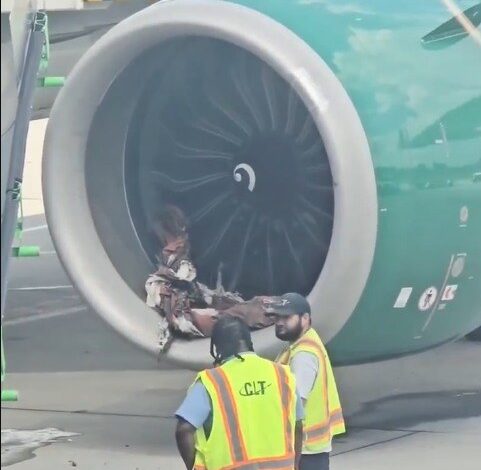Charlotte Airport Disruption: Frontier Airlines Aircraft Incident Brings Delays but Reinforces Importance of Ground Safety

Charlotte Douglas International Airport (CLT), one of the busiest aviation hubs in the United States, experienced notable delays on August 16, 2025, following an incident involving a Frontier Airlines Airbus A320neo. While the event caused inconvenience to passengers and operational teams, no injuries occurred, and aviation safety protocols functioned as intended.
This occurrence has drawn attention not only to the specific circumstances of the Frontier Airlines aircraft but also to the broader issues of ground safety, operational coordination, and the way airports handle unexpected challenges.
The Incident in Charlotte
Frontier Airlines Flight F93134 was scheduled to depart from Charlotte to New York–LaGuardia (LGA) on the morning of August 16. The aircraft in use, an Airbus A320neo with registration number N365FR, had already completed a flight earlier in the day from Philadelphia.
As ground crews prepared the aircraft for its next journey, an unusual situation unfolded. A ground-based air-conditioning unit, used to maintain cabin comfort while aircraft engines are shut down, became entangled with the left engine during the pre-departure process. The hose attached to this unit was inadvertently drawn toward the running engine and partially disintegrated, prompting immediate action from airport staff.
Operations were quickly halted. While the passengers onboard were unharmed and crew members followed standard emergency protocols, the aircraft required extensive inspection. Frontier Airlines and its maintenance team decided to remove the aircraft from service until thorough checks and repairs could be completed, in accordance with Federal Aviation Administration (FAA) requirements.
Passenger Experience
For the more than 150 travelers scheduled on Flight F93134, the delay was considerable. Passengers ultimately departed nearly nine hours later after Frontier secured a replacement aircraft.
Though extended waits in terminals can be stressful, most travelers expressed understanding of the airline’s decision. Many passengers acknowledged that aviation safety procedures, even when inconvenient, are designed to protect lives and ensure long-term reliability.
Frontier Airlines provided updates throughout the day, and staff worked to re-accommodate customers as quickly as possible. Some travelers were rebooked on later flights, while others waited for the substitute aircraft. Complimentary refreshments and assistance were offered to help ease the extended layover.
Airline and Airport Response
Frontier Airlines issued a statement shortly after the event, emphasizing its dedication to passenger safety and the integrity of its operations. The company assured the public that while the inconvenience was regrettable, every precaution was being taken to ensure that no risks would remain before returning the aircraft to service.
Charlotte Douglas International Airport, ranked as one of the top ten busiest airports in North America, also reinforced its commitment to safety procedures. Airport officials highlighted that ramp safety—the area around parked aircraft where ground support equipment operates—remains a top priority.
The incident triggered a coordinated response that involved ground crews, maintenance personnel, airport operations, and airline management. Such multi-level cooperation demonstrates how quickly the aviation industry responds to unexpected developments.
Why Ground Safety Matters
While most travelers associate aviation risks with flights themselves, experts note that many safety protocols are designed for ground operations. The area surrounding an aircraft during boarding, fueling, catering, and engine startup is filled with potential hazards.
Equipment such as power units, luggage loaders, catering trucks, and air-conditioning hoses are necessary for passenger comfort and operational efficiency. However, if not carefully managed, these devices can become safety concerns.
In this particular case, the suction power of a modern jet engine is strong enough to pull in lightweight objects within a close radius. Even a minor incident, such as a loose cloth, plastic sheet, or in this situation, a hose, can damage turbine blades and require significant maintenance work.